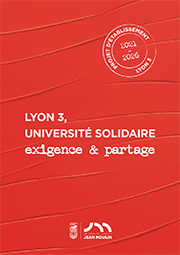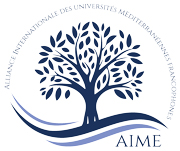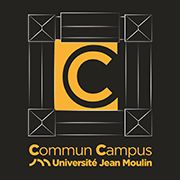AccueilRechercheProgrammes et productions scientifiquesThèsesThèses soutenuesThèses soutenues - 2006-2021Thèses soutenues - 2013
-
Partager cette page
- Recherche,
SEYEDI ARANI Seyed Abbas
La pertinence du modèle fran?ais de la société civile professionnelle pour le notariat iranien
Publié le 28 mai 2013 – Mis à jour le 28 mai 2013
Thèse droit comparé soutenue le 28 mars 2013
L’Iran est un pays à double visage, à la fois traditionnel et moderne. Le notariat y est exercé de fa?on traditionnelle et pourtant le développement économique du pays exigerait un notariat moderne. Ce notariat est aujourd’hui exclusivement pratiqué de fa?on individuelle. D’où une série de difficultés. Il importe de chercher un autre modèle. Le droit iranien s’est déjà inspiré du droit fran?ais dans le domaine du droit civil mais aussi dans l’organisation de la fonction de notaire. C’est donc tout naturellement que nous nous sommes tournés vers la France pour étudier d’autres modes d’exercice du notariat. En effet, après plusieurs années d’exercice à titre individuel, cette profession y est aujourd’hui pratiquée de fa?on collective selon plusieurs modèles. L’exercice au sein d’une Société Civile Professionnelle a particulièrement retenu notre attention. Il s’agit alors d’analyser les avantages et les inconvénients de cette société particulière du droit fran?ais pour constater que ce type de société peut être adapté, après certains aménagements, au notariat iranien. Au préalable, il convient d’implanter la notion de société et les règles applicables à la société civile du droit fran?ais qui nourrissent la règlementation de base de la Société Civile Professionnelle.
Dans la première partie de cette recherche, l’évolution du notariat fran?ais est abordée. L’apparition des difficultés d’exercice a poussé ce notariat à accueillir favorablement la Société Civile Professionnelle comme nouveau mode d’exercice de la profession par la loi de 1966. L’étude du fonctionnement de cette société a bien démontré que l’exercice de la profession en société ne change rien à la force de l’acte notarié ni au r?le et à l’influence du notaire, et même, que le service rendu à la clientèle est bien meilleur.
Dans la deuxième partie, après avoir rappelé l’histoire du notariat iranien et sa définition, l’étude de son fonctionnement actuel et des difficultés qui en résultent, démontre la nécessité d’implanter la Société Civile Professionnelle du droit fran?ais comme nouveau mode d’exercice. Or, dans la mesure où il y a une confusion entre la notion d’indivision et de société dans le Code civil iranien, et cela malgré l’existence des sociétés commerciales dans le Code de commerce iranien, il est apparu essentiel de distinguer ces notions afin de les organiser. C’est ainsi que tout est prêt pour implanter et adapter les règles applicables à la société civile fran?aise. Finalement, face à des sociétés professionnelles non organisées dans le droit iranien, il a fallu les organiser et les adapter au notariat iranien. Gr?ce à cette étude il peut être proposé au législateur iranien un nouveau modèle d’exercice du notariat adapté aux besoins d’une société moderne avec une législation pouvant s’étendre à d’autres sociétés professionnelles ou commerciales, occasion aussi de clarifier la notion de ? société ? et d’? indivision ?.
Iran is a two-faced country, both traditional and modern. Notary position is there exercised in a traditional way, but yet the economic development of the country requires modernization of this profession. Today, the notary position is exclusively practiced individually. Hence a serie of difficulties. Therefore, it is important to look for another model. If Iranian law has already been inspired by French law in the field of civil law, it also influenced the organization of the functions of notary. It is therefore natural for Iran to turn to France to study other modes of exercise of this profession. Indeed, after several years of individual practice, the position of notary is now practiced collectively according to several models. Practicing within a “Professional Partnership” (ie: “Société Civile Professionnelle”) particularly caught our attention. We aim at analyzing the advantages and disadvantages of this typical French form of partnership to observe that this particular type of partnership can be adapted, after some adjustments, to the Iranian notary practice. At the outset, the French concepts of “Company” and the French regulation specifically applicable to the “Civil Partnership”, at the heart of the “Professional partnership” regulation should be introduced.
In the first part of this research, the evolution of the French notary profession is addressed. Appearance of practice difficulties pushed the notaries to welcome the “Professional Partnership” as the new mode of practicing with the 1966 Act. The study of how this partnership is operating has shown that exercising the profession of notary within a partnership does not change the strength of a deed or the role and influence of the notary, but rather that there is a better service provided to the customer.
In the second part, after recalling the history of the Iranian Notary profession and its definition, the study the common way of exercising and its resulting difficulties, demonstrates the need to implement the Professional Partnership French regulation as the new mode of practice. However, insofar as Iranian Civil Code merges the notions of Joint-ownership (“indivision”) and Civil Partnership, despite the existence of Commercial Partnership in the Iranian Commercial Code, it was essential to distinguish these notions in order to organize them. At the time, everything seems ready to implement and adapt the French rules applicable to the French Civil Partnership. Finally, facing unorganized professional partnerships under Iranian law, this work allows to organize and adapt a new model to the Iranian Notaries. Through this study, a new model for notary practice can be proposed to the Iranian legislature that is adapted to the needs of a contemporary society. Such a research may then be extended to other professional or commercial partnerships and was also an opportunity to clarify the legal concepts of "partnerships" and "joint-ownership".
Mots clés : Iran – France – Notaire – Clerc – Responsabilité - Exercice individuel - Exercice en société - Autorité de tutelle – Authenticité – Conseil - Office notarial
Key words : Iran - France – Notaire – Clerk – Responsibility - Individual exercise - Financial company - Supervisory authority – Authenticity – council - Notarial office
Directeur de thèse : Cyril NOURISSAT
Membres du jury :
Hubert BOSSE-PLATIERE, Professeur, Université de Bourgogne
Abbas KARIMI, Professeur, Université de Téhéran
Jean-Paul DECORPS, Professeur associé, Université d'Aix-Marseille
Yves REINHARD, Professeur, Université Jean Moulin Lyon 3
Cyril NOURISSAT, Professeur, Université Jean Moulin Lyon 3
Président du jury : Yves REINHARD
Mention : Très honorable avec les félicitations du jury
Equipe d'accueil : Institut de droit comparé
Dans la première partie de cette recherche, l’évolution du notariat fran?ais est abordée. L’apparition des difficultés d’exercice a poussé ce notariat à accueillir favorablement la Société Civile Professionnelle comme nouveau mode d’exercice de la profession par la loi de 1966. L’étude du fonctionnement de cette société a bien démontré que l’exercice de la profession en société ne change rien à la force de l’acte notarié ni au r?le et à l’influence du notaire, et même, que le service rendu à la clientèle est bien meilleur.
Dans la deuxième partie, après avoir rappelé l’histoire du notariat iranien et sa définition, l’étude de son fonctionnement actuel et des difficultés qui en résultent, démontre la nécessité d’implanter la Société Civile Professionnelle du droit fran?ais comme nouveau mode d’exercice. Or, dans la mesure où il y a une confusion entre la notion d’indivision et de société dans le Code civil iranien, et cela malgré l’existence des sociétés commerciales dans le Code de commerce iranien, il est apparu essentiel de distinguer ces notions afin de les organiser. C’est ainsi que tout est prêt pour implanter et adapter les règles applicables à la société civile fran?aise. Finalement, face à des sociétés professionnelles non organisées dans le droit iranien, il a fallu les organiser et les adapter au notariat iranien. Gr?ce à cette étude il peut être proposé au législateur iranien un nouveau modèle d’exercice du notariat adapté aux besoins d’une société moderne avec une législation pouvant s’étendre à d’autres sociétés professionnelles ou commerciales, occasion aussi de clarifier la notion de ? société ? et d’? indivision ?.
Iran is a two-faced country, both traditional and modern. Notary position is there exercised in a traditional way, but yet the economic development of the country requires modernization of this profession. Today, the notary position is exclusively practiced individually. Hence a serie of difficulties. Therefore, it is important to look for another model. If Iranian law has already been inspired by French law in the field of civil law, it also influenced the organization of the functions of notary. It is therefore natural for Iran to turn to France to study other modes of exercise of this profession. Indeed, after several years of individual practice, the position of notary is now practiced collectively according to several models. Practicing within a “Professional Partnership” (ie: “Société Civile Professionnelle”) particularly caught our attention. We aim at analyzing the advantages and disadvantages of this typical French form of partnership to observe that this particular type of partnership can be adapted, after some adjustments, to the Iranian notary practice. At the outset, the French concepts of “Company” and the French regulation specifically applicable to the “Civil Partnership”, at the heart of the “Professional partnership” regulation should be introduced.
In the first part of this research, the evolution of the French notary profession is addressed. Appearance of practice difficulties pushed the notaries to welcome the “Professional Partnership” as the new mode of practicing with the 1966 Act. The study of how this partnership is operating has shown that exercising the profession of notary within a partnership does not change the strength of a deed or the role and influence of the notary, but rather that there is a better service provided to the customer.
In the second part, after recalling the history of the Iranian Notary profession and its definition, the study the common way of exercising and its resulting difficulties, demonstrates the need to implement the Professional Partnership French regulation as the new mode of practice. However, insofar as Iranian Civil Code merges the notions of Joint-ownership (“indivision”) and Civil Partnership, despite the existence of Commercial Partnership in the Iranian Commercial Code, it was essential to distinguish these notions in order to organize them. At the time, everything seems ready to implement and adapt the French rules applicable to the French Civil Partnership. Finally, facing unorganized professional partnerships under Iranian law, this work allows to organize and adapt a new model to the Iranian Notaries. Through this study, a new model for notary practice can be proposed to the Iranian legislature that is adapted to the needs of a contemporary society. Such a research may then be extended to other professional or commercial partnerships and was also an opportunity to clarify the legal concepts of "partnerships" and "joint-ownership".
Mots clés : Iran – France – Notaire – Clerc – Responsabilité - Exercice individuel - Exercice en société - Autorité de tutelle – Authenticité – Conseil - Office notarial
Key words : Iran - France – Notaire – Clerk – Responsibility - Individual exercise - Financial company - Supervisory authority – Authenticity – council - Notarial office
Directeur de thèse : Cyril NOURISSAT
Membres du jury :
Hubert BOSSE-PLATIERE, Professeur, Université de Bourgogne
Abbas KARIMI, Professeur, Université de Téhéran
Jean-Paul DECORPS, Professeur associé, Université d'Aix-Marseille
Yves REINHARD, Professeur, Université Jean Moulin Lyon 3
Cyril NOURISSAT, Professeur, Université Jean Moulin Lyon 3
Président du jury : Yves REINHARD
Mention : Très honorable avec les félicitations du jury
Equipe d'accueil : Institut de droit comparé
Documentation
Mise à jour : 28 mai 2013







